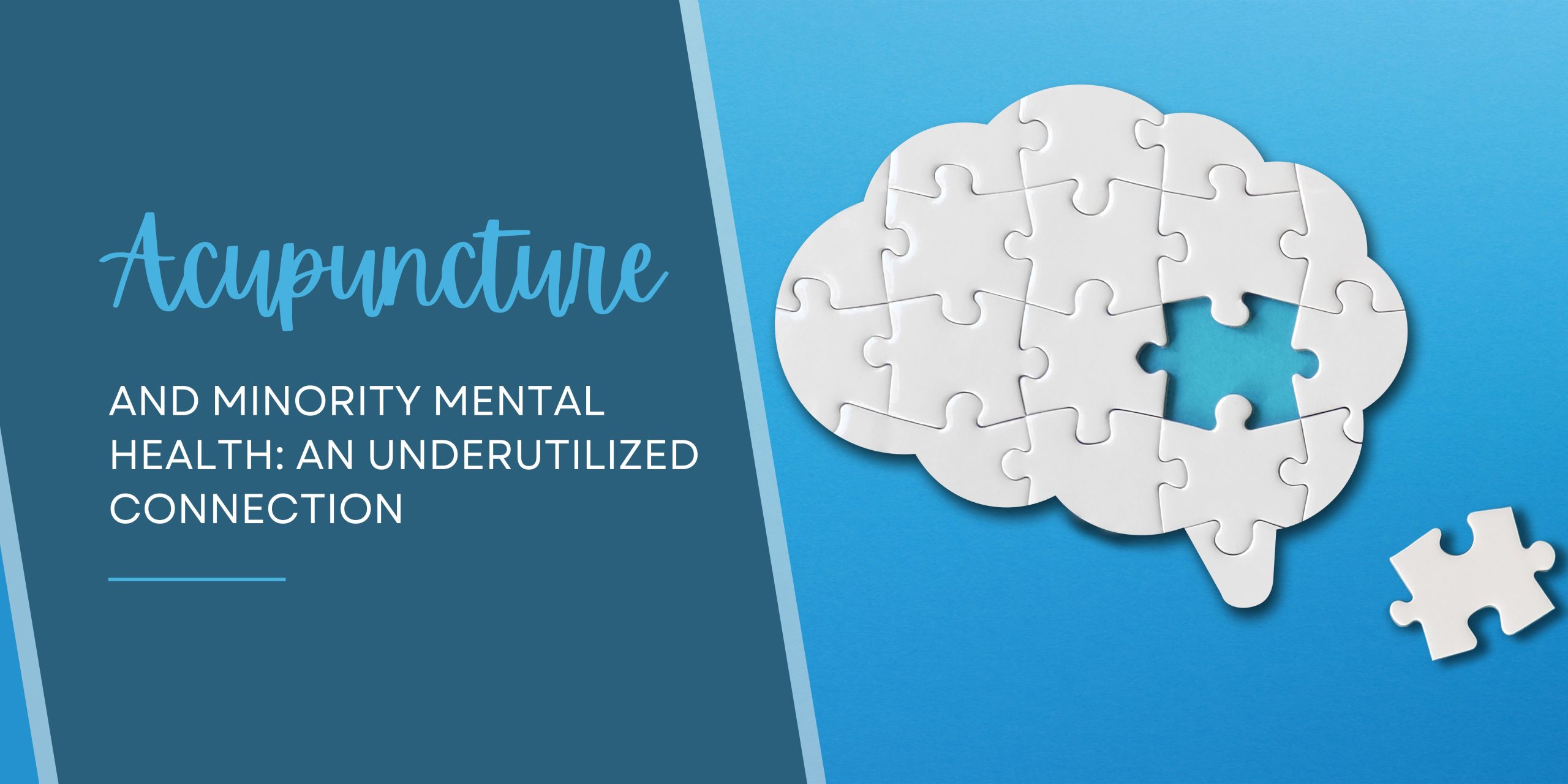
In recognition of Minority Mental Health Awareness Month this July, we aim to shed light on an unconventional, yet increasingly valuable, approach to mental health treatment – acupuncture. This ancient practice, long revered in Traditional Chinese Medicine, has been making strides in modern integrative medicine and could offer unique benefits to minority populations battling with mental health issues.
Understanding Minority Mental Health
Minority Mental Health Awareness Month was established with the purpose of creating an inclusive and empathetic dialogue about mental health issues that disproportionately affect racial and ethnic minority groups. These communities face unique challenges, such as greater exposure to stressors like discrimination, economic disparity, and language barriers, which can directly contribute to mental health issues. Furthermore, they often encounter cultural stigma and lack access to adequate mental health resources, making the situation even more challenging.
The Potential of Acupuncture in Mental Health Treatment
Acupuncture, an age-old component of Traditional Chinese Medicine, has been used for centuries to treat various ailments by inserting thin needles into specific points on the body. These acupuncture points are believed to balance the body’s energy, or “qi,” and promote healing. Recent scientific studies have indicated that acupuncture can help alleviate a range of mental health disorders, such as anxiety, depression, and post-traumatic stress disorder.
A meta-analysis published in the *Journal of Psychiatric Research* in 2021 found that acupuncture can significantly reduce symptoms of depression, rivaling the effectiveness of cognitive-behavioral therapy and medication. Moreover, the *Journal of Alternative and Complementary Medicine* (2021) published a study revealing that acupuncture could decrease anxiety symptoms, even for those with generalized anxiety disorder.
Accessibility and Acceptance in Minority Communities
Acupuncture may hold special appeal to minority populations due to its holistic approach, non-invasiveness, and minimal side effects, offering an alternative for individuals wary of traditional psychiatric medications or therapy. It aligns well with many cultures’ emphasis on holistic and natural healing, potentially reducing the stigma associated with mental health treatment.
Moreover, community acupuncture clinics, providing services on a sliding scale, are growing across the country, making this therapy more affordable and accessible to economically disadvantaged communities.
Bridging the Gap with Research and Education
While promising, the research on acupuncture’s effectiveness for mental health disorders needs more randomized controlled trials, particularly focusing on minority populations. Addressing the diversity gap in research can help identify the specific needs and responses of these communities, tailoring treatments more effectively.
Educating minority communities about acupuncture and other integrative health options is also crucial. By incorporating cultural competence and sensitivity into health education, we can empower these communities to seek out and receive the help they need.
Let’s come together to create more inclusive mental health support systems. Be part of the change by raising awareness about the potential of alternative treatments like acupuncture. Remember, mental health is universal, and our approaches to addressing it should reflect the diverse needs of all communities.


